Write Us
We are just a call away
[ LET’S TALK AI ]
X
Discover AI-
Powered Solutions
Get ready to explore cutting-edge AI technologies that can transform your workflow!

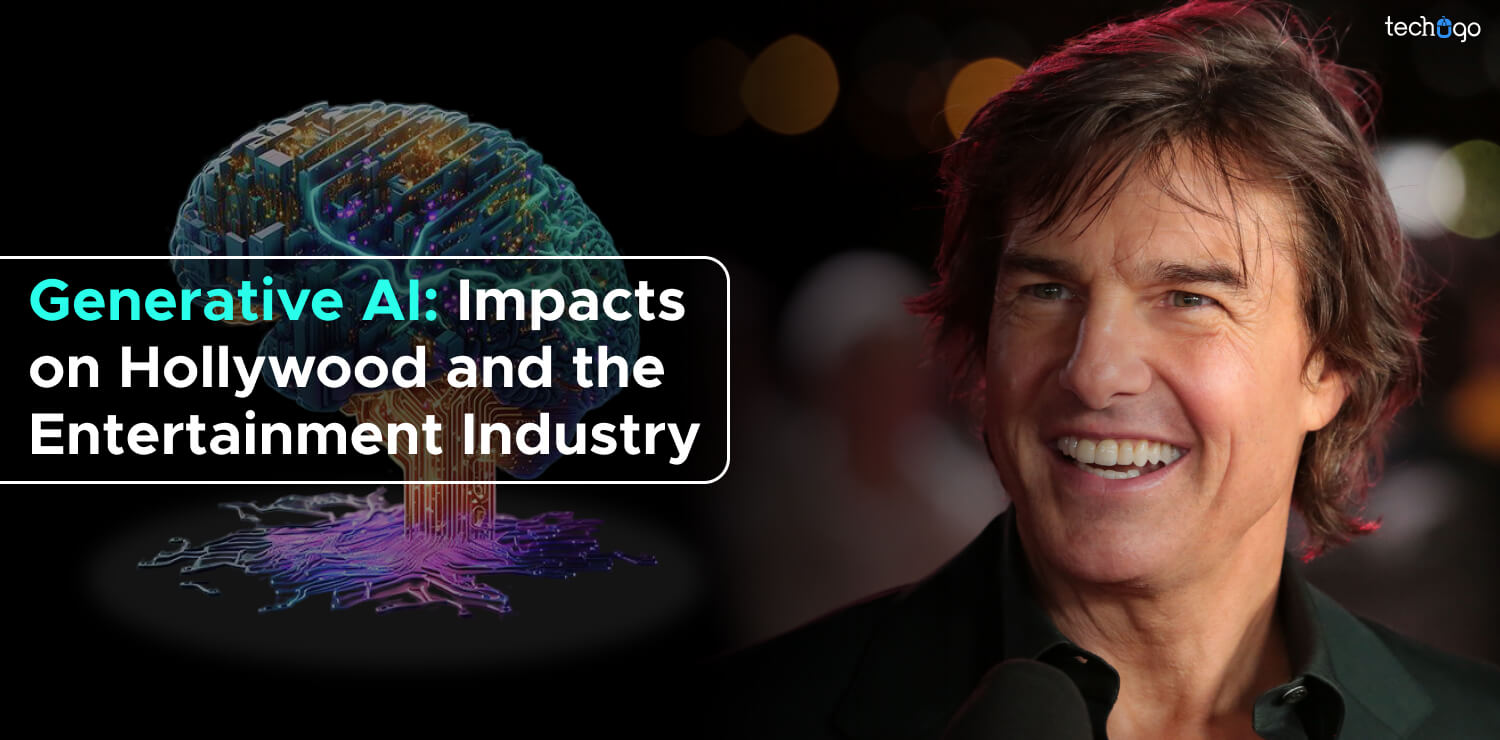
The growth of Generative Artificial Intelligence (GAI) blurs the lines between machine and human innovation, dazzling people around the globe with its artistic and creative possibilities. The creative sector is prime for developing GAI applications. For instance, a forthcoming film will make Tom Cruise look younger using the Metaphysic GAI tool. The latest technology lets filmmakers capture the data of actors to reproduce their performance and incorporate the footage into upcoming films without being physically present on stage. The Beatles set new standards for creativity when they co-produced a song using AI.
Production studios increasingly incorporate AI in entertainment because it’s cheaper than using humans to create content. Reshoots constitute a significant cost for production. The most recent Superman film, “Man of Steel,” needed a series of expensive shoots to be reshot before the film’s release since the main character required facial hair to be digitally removed. Using GAI could have saved costs and increased the quality.
Generative AI is changing the field, creating new possibilities for human imagination and a nifty potential. However, concerns over AI use in relation to copyright, job displacement, and data security played a major factor in the recent labor dispute in Hollywood.
This blog explores the details of the impact of firms that are adopting the latest AI technology and also the way generative AI integration services affect creative professionals.
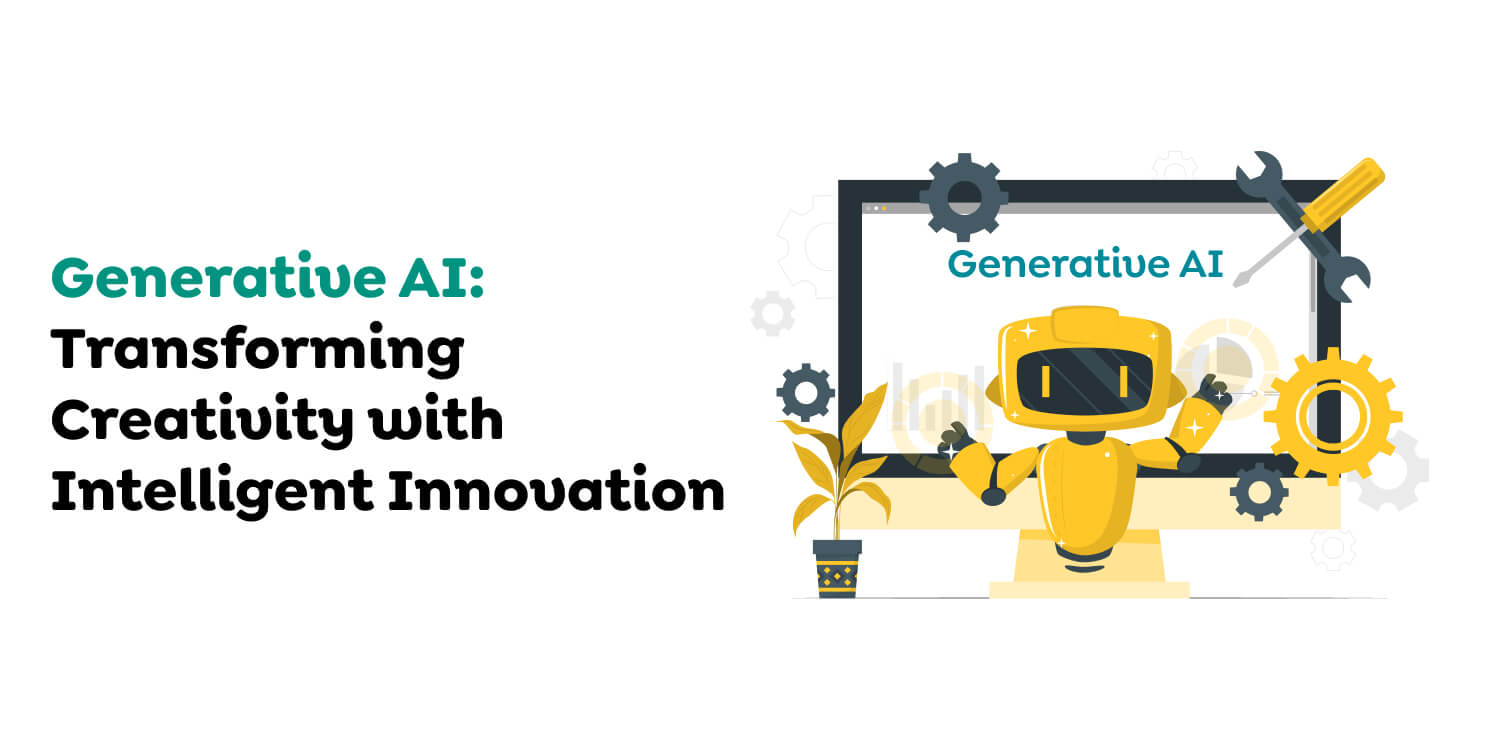
Generative AI is an advanced technological tool designed to transform the way people work. Every AI machine is fed with a large amount of information and trained to produce accurate, high-quality output. According to Reuters, this AI kind “creates brand new content—a text, an image, even computer code.”
Reuters said it’s distinct from other forms of AI since it creates outputs, not “simply categorizing or identifying data like other AI. ” Discriminative AI is a different major class within the rapidly expanding field intended to cut into distinct pieces of data according to a certain limit. A few examples of discriminative AI include decision trees and logistic regressions.
On the contrary, examples of Generative AI comprise image generators and language modelers. Generative AI may use a 10-photo input of a particular individual and generate 50 headshots similar to the person in the output. A Generative AI program like ChatGPT can ask a simple question and then write an answer based on similar words entered into the program as data.
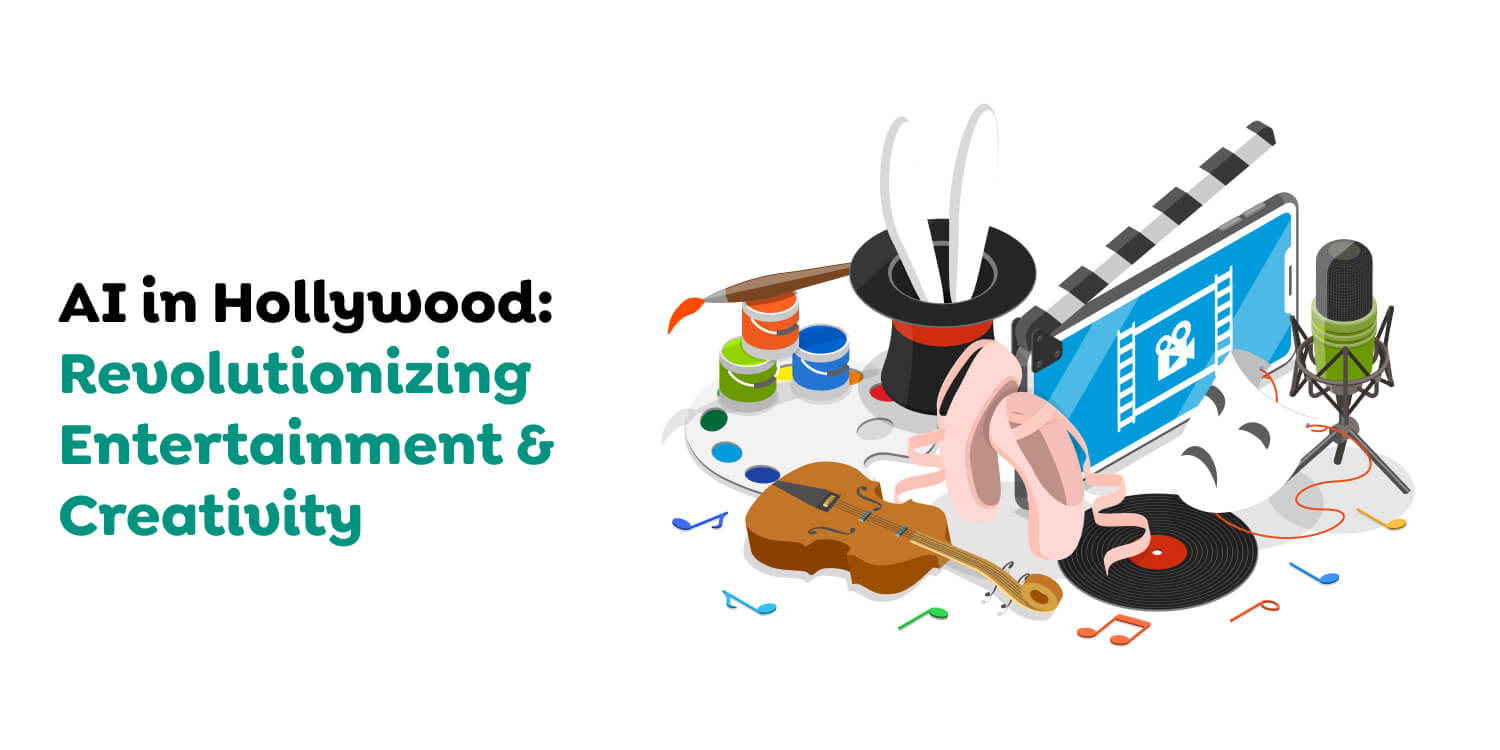
While the entertainment industry’s generative AI is still at the beginning stage, it is driving significant developments. Generative AI and content creation will impact a variety of industries. However, the production process in the entertainment and media sector is undergoing a significant change. Generative AI can create various outputs crucial for the industry, including stories, text scripts, advertisements, script reviews, and more.
Additionally, it is adept at composing marketing campaigns and creating still and animated images. Because a significant portion of entertainment today takes inspiration from previous content, generative technology trained on historical data is best suited to the task.
Therefore, certain segments of the industry are facing economic pressures, which are causing the need for increasing efficiency and, thus, a shift towards AI-driven content development. So, how might the entertainment industry change as a result of AI?
This is the impact of generative AI on hollywood and entertainment industry:
Recommendation systems using AI examine the user’s behavior and make targeted content recommendations that boost the user’s satisfaction and retention in streaming platforms and services.
AI-powered visual effects can improve the quality of CGI in films or TV programs, creating realistic characters, creatures, and environments that enhance the storytelling.
AI algorithms help streamline script and content writing by analyzing vast amounts of data from films, scripts, and viewers’ preferences to create novel narratives and ideas that result in more interesting and relevant content.
AI can help with data analysis and provide business insight by analyzing box office performance, audience reaction, and industry trends to aid in making decisions about investments and strategies.
AI can enable interactive storytelling, allowing users to choose their own stories and affect the narrative’s direction, resulting in personal, immersive, and engaging experiences.
AI algorithms guard copyrighted content by observing digital platforms for infringements, identifying any unauthorized copyrighted material, and securing IP rights.
AI improves the quality of virtual and augmented reality by providing real-life characters, dynamic environments, and dynamic interactions, making entertainment more exciting and engaging.
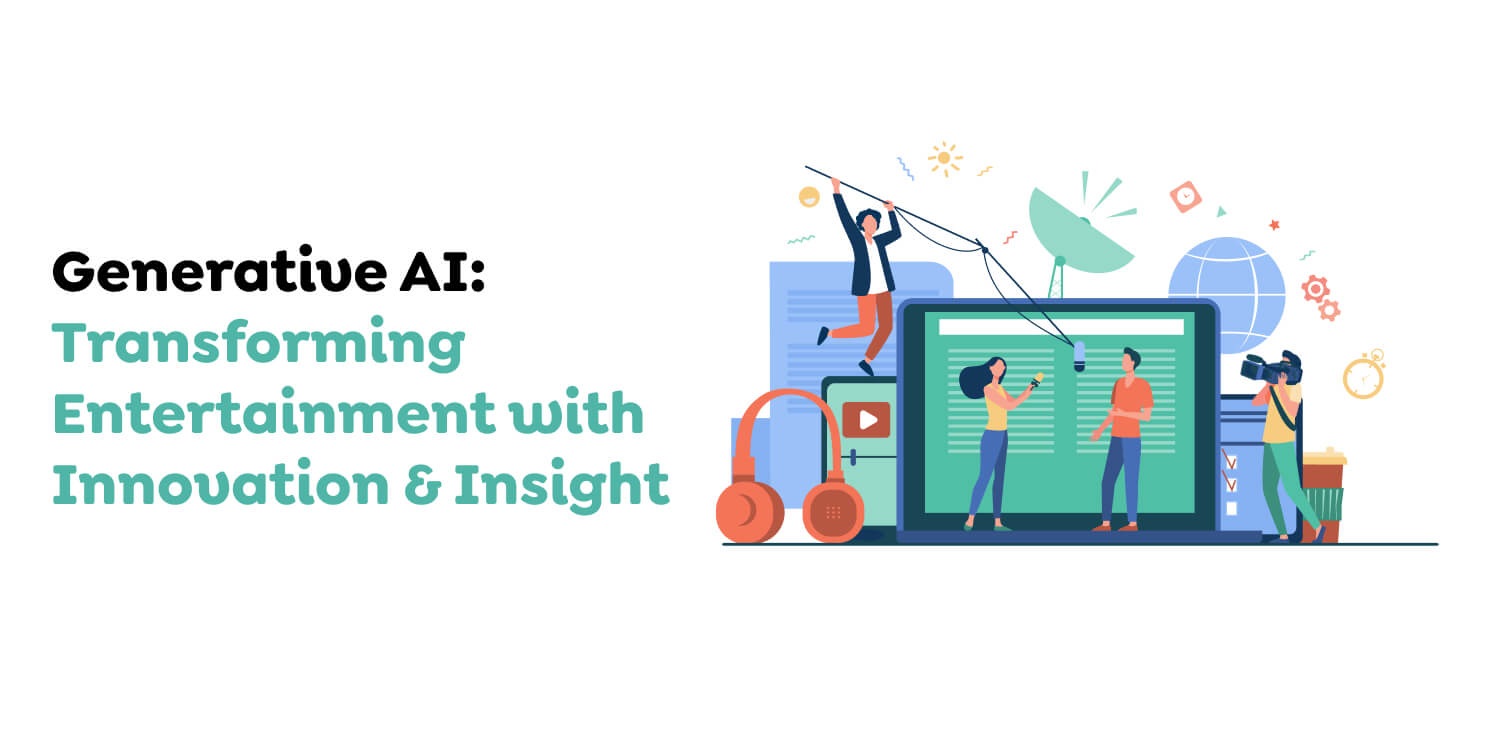
Generative Artificial Intelligence (AI) isn’t an occasional trend; it will change how we view media and entertainment. This technology will impact how media is made, consumed, promoted, and even experienced.
Generative AI is a powerful tool for producers, creators, and gamers, providing unparalleled personalization, innovation, and efficacy. With generative AI, standardized experiences are now a no-go. With the assistance of entertainment companies, they can make their own choices based on each user’s preferences and interests.
As the technology begins to take shape, many businesses are pondering questions about generative AI technology, its potential benefits, and the best places to use it. Here are four ways that generative AI can assist entertainment and media companies operate more effectively and communicate with viewers in a new way.
Generative AI assists creators of all sizes in better understanding their audience preferences, patterns, and trends. The data, which is quickly analyzed by AI, will assist media and entertainment businesses in determining what content they should create or adapting their offerings to specific audiences.
For example, streaming services can use the power of generative AI to ask questions about their viewers through natural language processing and generate real-time feedback on the content they prefer, their interests, and even suggestions regarding future initiatives.
Generative AI has the potential to enhance the human creative process, which is present in entertainment and media formats. The potential for cost, time, and cost savings, especially for repetitive tasks, is enormous.
The use of AI tools can provide value in the creative process, beginning with the early stages, such as storyboarding or script outline. For instance, an AI tool could create storyboards using the prompt template or examine existing storyboards and make suggestions for framing, composition, and visual storytelling.
Later, generative AI tools have the potential to create visual effects, help in music composition, and edit and rewrite recorded dialogue. As the capabilities of text-to-video continue to increase, these possibilities will continue to grow.
Businesses are using generative AI to produce large quantities of content across diverse channels and contexts, such as social media, video, and long-form text. The future of AI can increase the volume of content, maintain quality, and broaden the scope of targeting key consumers.
According to research by Deloitte Digital, companies that use generative AI have already met customer needs for content 65% of the time. Companies that don’t use generative AI have a score of higher than 20 points.
Media and entertainment companies are already using VR and AR technologies. An adaptive AI development company could help make these processes more effective and seamless.
For instance, AI tools can help users design virtual avatars that resemble their physical appearance and mimic their behavior and mannerisms. This degree of realism and personalization improves the interactivity and immersion of VR/AR experiences and makes them more immersive and realistic.
In the virtual world, media companies could use the power of generative AI to create a captivating experience that blurs the lines between fantasy and reality. One outcome that could result from this strategy is creating a VR storytelling experience in which humans mix and interact with AI-generated characters. The AI-generated characters will respond to queries, engage in conversation, and even change the narrative based on the user’s preferences.
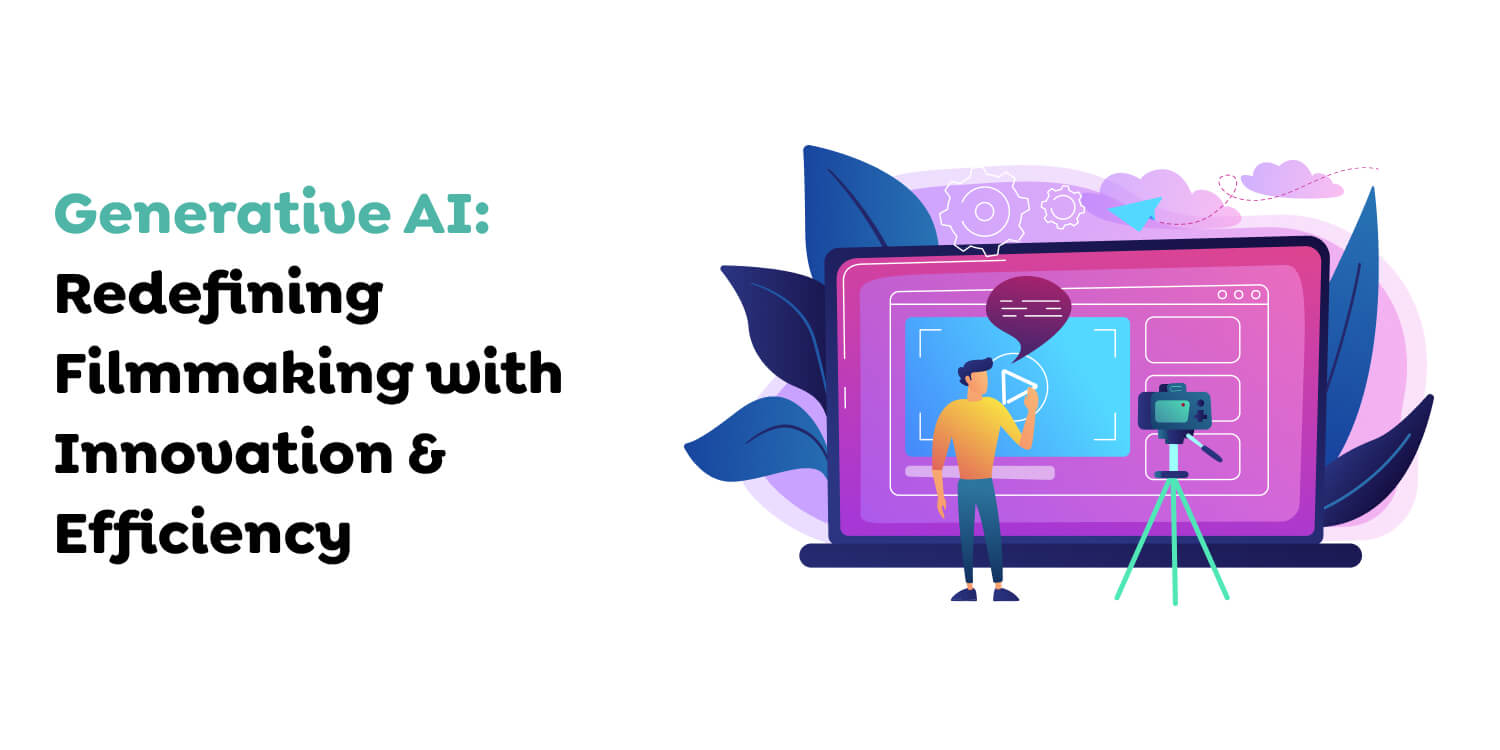
Film production is a difficult procedure that requires meticulous planning, innovative storytelling, and technical proficiency. Generative AI has found its niche in a variety of film production fields, changing the method of making films.
Generative AI is a promising technology that promises to revolutionize the initial phases of filmmaking by helping with script writing and storyboarding. Through the analysis of huge databases of stories and scripts, Generative AI algorithms can come up with new concepts and provide suggestions to enhance the creation process. This helps create compelling and captivating storylines, which saves time and money.
Imagine a world in which generative AI algorithms can analyze the trends and preferences of viewers and allow filmmakers to craft stories that are incredibly resonant with viewers. To understand the intricacies of telling stories and what elements draw viewers, generative AI algorithms can provide valuable suggestions and insights for filmmakers to help them make compelling stories that leave a lasting impression.
In addition, generative AI could aid in the visualization of storyboards. Through its ability to create realistic images, AI algorithms can bring the storyboards to life, giving an insight into how a scene is likely to appear and feel. This can help filmmakers envision their vision but also assist in efficient communication with the team behind the scenes, making sure all parties are on the same level.
The world of special effects and computer-generated images (CGI) has seen an essential transformation since the introduction of artificial intelligence or generative AI. AI-powered algorithms now produce real-looking visual effects and seamless CGI that seamlessly blend with live-action footage. From creating stunning landscapes to creating fantastical creatures, Generative AI pushes the limits of visual storytelling and engages viewers with breathtaking visuals.
Generative AI algorithms can analyze huge quantities of data, such as videos, images, and real-world physics, to create amazing and realistic effects. This is not just a way to save time and resources but also allows filmmakers to imagine new possibilities that would otherwise be unimaginable.
Imagine a scene where someone stands at an edge with a breathtaking and expansive landscape. Through generative AI, filmmakers can design this scene without paying for costly location scouting or physically building complex sets. AI algorithms can create the scenery, the cliff, and the lighting settings, which results in an aesthetically stunning and engaging experience for the viewers.
In addition, partnering with a generative AI consulting company could help media and entertainment businesses designing realistic characters and creatures. By analyzing existing designs and incorporating elements from different sources, AI algorithms can generate distinctive and intriguing characters that challenge the limits of imagination. From mythical animals to future-oriented beasts, Generative AI opens many possibilities for filmmakers to bring their visions to reality.
Generative AI algorithms let musicians use machine learning’s potential to create and compose music. By studying vast quantities of music compositions, generative AI can suggest chord progressions and arrangements that are in sync with a particular kind of music. This is not just a way to open new avenues of musical exploration but also acts as a helpful instrument for musicians who are seeking ideas and guidance in their creative process.
Mixing and designing sound requires a blend of technical knowledge and artistic imagination. Generic AI algorithms can help in this endeavor by automating some tasks and recommending innovative soundscapes. Analyzing the vast collection of sounds generated by the generative AI can create unique soundscapes that allow audio designers to design enthralling and captivating audio experiences.
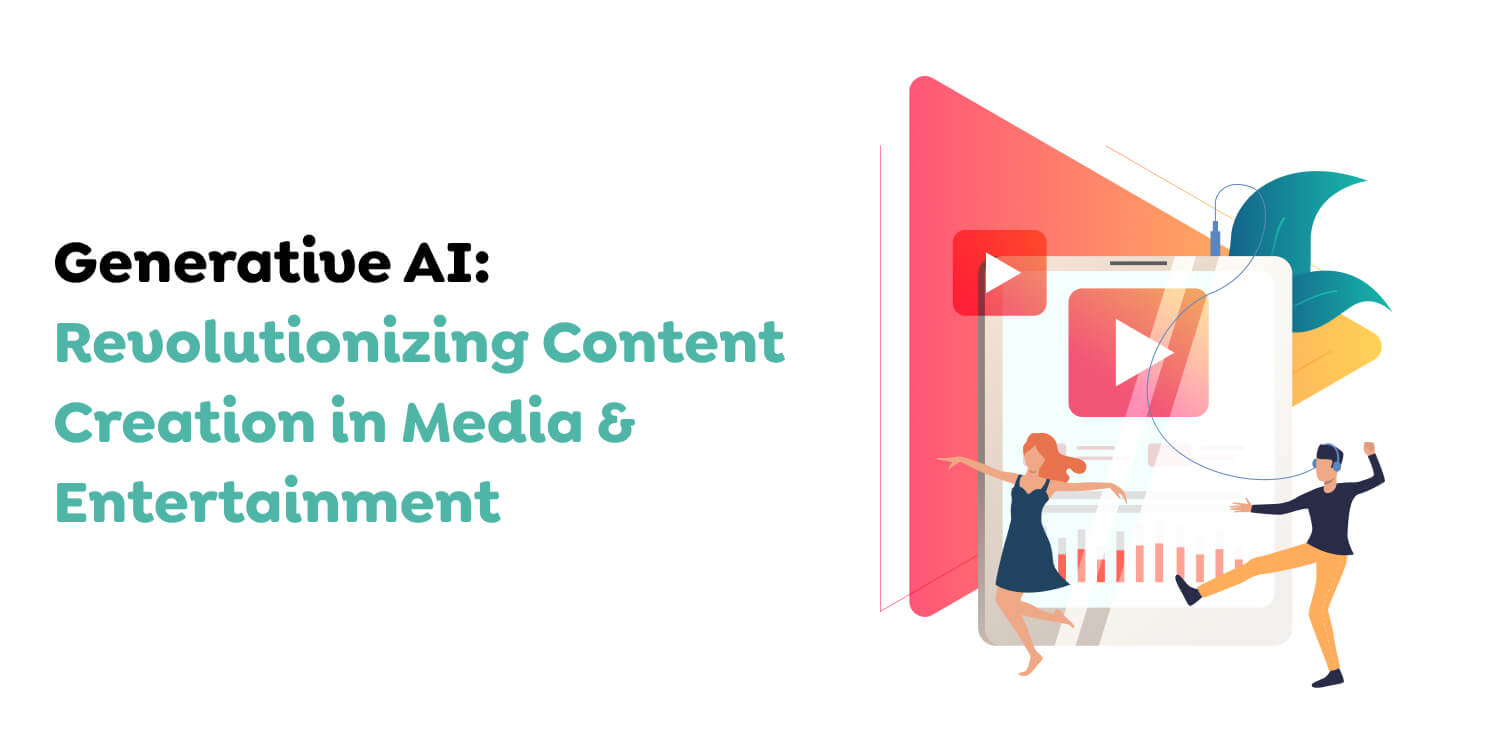
Here are some use instances that illustrate the use of Generative AI for entertainment and media:
Earlier, scriptwriters took the same approach to creating content on multiple media platforms. However, Generative AI is taking content creation to a new level. Generative AI tools make it easy for scriptwriters and filmmakers to write many scripts in just a few seconds. Furthermore, this AI-powered technology utilizes ML algorithms to analyze users’ preferences and demographics and generate customized content.
As Generative AI learns from previous information, it can perform more imaginative tasks and create content that resembles human content. Therefore, media companies can produce more content that is more accessible to a larger audience with fewer resources.
For example, Generative AI is a valuable tool for journalists to analyze data and develop news stories or summaries of editorial content more quickly. In addition, broadcasters can use Generative AI to discover videos and create thrilling stories in the future.
With Generative AI, multimedia content like podcasts, videos, and other formats can be translated into various languages. It also reduces linguistic barriers by allowing media content to reach various viewers.
Additionally, AI-powered technology lets users experience the content (TV movies, shows) in their preferred language since instant translation is now feasible. This leads to greater engagement since international viewers are able to access the content in multiple languages.
Like other fields, such as advertising, marketing, HR, and so on, Generative AI is an important instrument for entertainment and media.
In the past, media producers had to complete various tasks, including analyzing the audience and breaking down scripts to identify the scenes and characters, locating the right location, etc. It’s a lengthy process when producers must determine the specifics about whether or not.
Through Generative AI, filmmakers can quickly plan their shoots. This technology automates a significant portion of their work and allows them to concentrate on other tasks that require creativity.
Generative AI in entertainment and media changes how visual effects and computer-generated images are made. It can quickly develop visual effects that work perfectly with live-action films. Furthermore, these AI-powered tools are time-saving for filmmakers as they can quickly produce realistic and visually stunning effects following an analysis of jumps and data leaps.
Imagine that a filmmaker has to create an animated film that revolves around a person taking in a stunning landscape. To make a scene like this film, the filmmakers must spend long hours on location scouting, setting up the physical layout, arranging the lighting, and so on.
Generative AI makes filmmaking easier by generating animated characters, arranging virtual locations, and creating costumes using image-generation tools. This creates an enjoyable experience for viewers while filmmakers create exciting stories, which means that they can save money in the post-production stage.
Consumers have altered their media consumption habits, moving away from traditional ways of watching movies and toward using digital platforms to consume content. Media companies are trying to figure out ways to increase the monetization process and earn more from consumers.
Generative AI enables media companies to create highly personalized ads and custom content, keeping their audience engaged for long periods of time. More users interact with advertisements and content leads to more CTRs, which can increase advertising revenue.
For example, Netflix and Amazon use Generative AI to customize user interfaces and create hyper-personalised content for their users. Customers will enjoy their experience and spend longer on the platform to watch media, which will lead to more subscriptions.
Generative AI technology within the media and entertainment sector isn’t limited to creating new content. Previously, distributing the content to local markets was a problematic cost task. With Generative AI, the content can be translated to a specific region since it dubs content into various languages.
Let’s say a team producing the video is a Spanish audience and must include Spanish voices. The tool will efficiently do this. It transforms the distribution of content by providing a variety of advantages, such as:
For instance: A cofounder and Hollywood director of the Flawless firm (Scott Man) uses Generative AI to dub film content in various languages. The software can match the actor’s voice and produce an authentic dubbed film version in different languages. Microsoft vocal fonts, for example, can assist the team behind the production and make dubbing more efficient by incorporating voices into the video.
Generative AI technology enables media companies to create personalized advertisements for their audience. The technology employs a machine learning algorithm that analyzes the data of audience members and creates relevant and dynamic advertisements. Companies can achieve higher conversions and better click-through rates by implementing ad campaigns with a personal touch aligned with targeted segments.
The media industry has many pieces of content, and manually tagging every piece of content was tedious. If the content isn’t tagged, consumers cannot find relevant content. Yet, Generative AI first understands the context of the subject and then inserts meta tags automatically.
This eases the burden for editors and content creators since they can focus on producing great content instead of spending time applying the appropriate tags. Furthermore, AI learns from how people use websites and is constantly developing content tagging, which improves the content’s searchability.
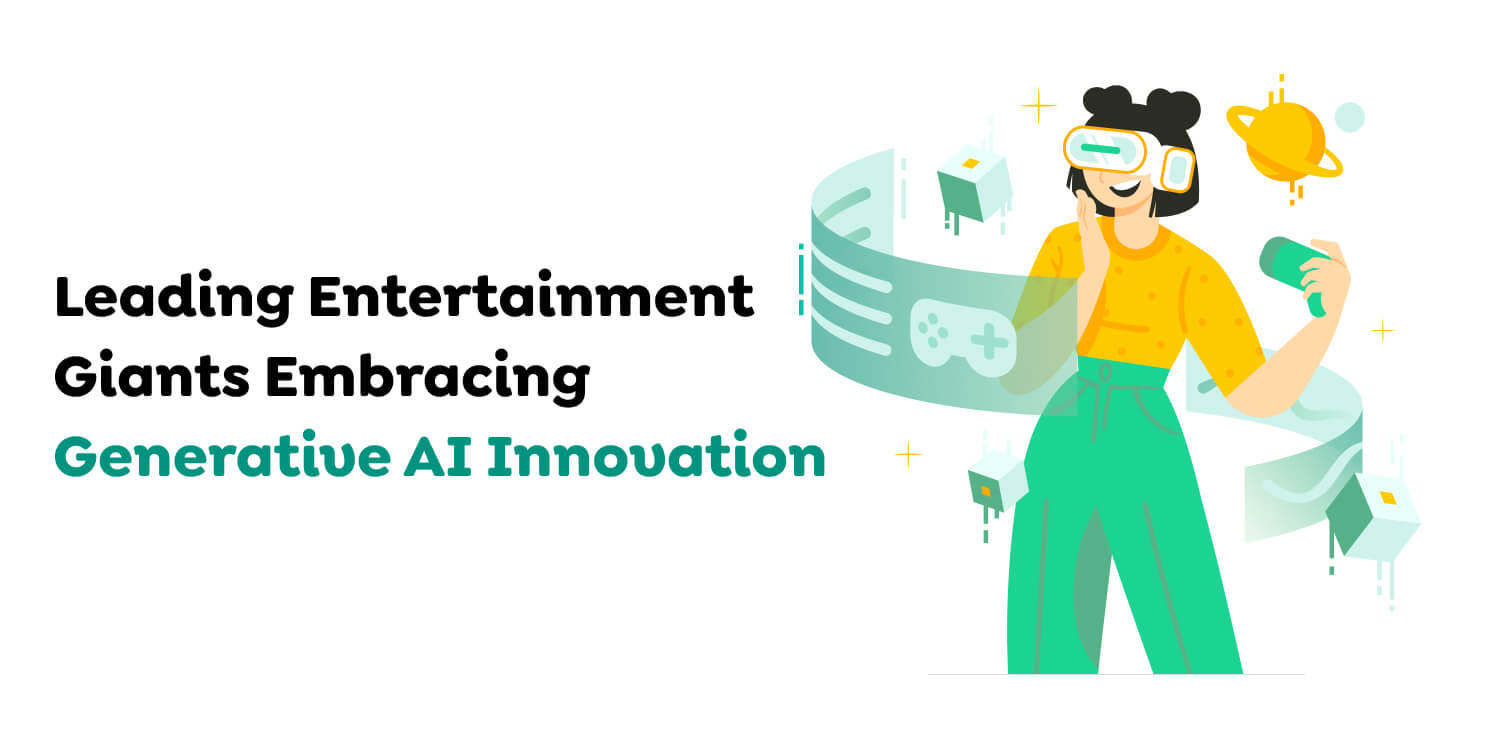
Here is a list of top entertainment companies that have partnered with a generative AI development company to enhance user experience and offer seamless viewing experiences.
Netflix uses an extensive customer experience and enhances the content it offers. To offer specific content recommendations, Netflix utilizes sophisticated recommendation algorithms that study the user’s behavior, history of viewing, and preferences. AI enhances streaming quality by anticipating network conditions and adapting video quality. In addition, Netflix uses AI to determine the most popular genres and themes and to guide its production strategies and methods for content acquisition.
Disney’s AI strategy is varied and covers particular challenges in animation and larger-scale applications for the company. In the realm of animation, they’ve created deep learning methods to differentiate and recognize characters in complicated scenes. This approach also personalizes content and metadata tags to improve user experience on platforms like ESPN.
Paramount Pictures leverages AI to improve its content localization and operational efficiencies. By using AI to translate and adapt content to various markets in the region, Paramount has achieved faster and more accurate translations, substantially increasing its global reach and ensuring cost-effectiveness.
Furthermore, AI is integrated into the distribution and production processes by optimizing the shooting schedule, managing huge datasets, and improving visual effects. These advances not only simplify operations but also enable the use of data-driven marketing strategies to ensure that the content reaches the right audience efficiently. Paramount’s use of AI highlights its commitment to technological innovation in the entertainment business.
20th Century Fox uses AI to improve its marketing strategies by predicting viewers’ preferences through analyzing movie trailers. Their deep-learning model analyzes aspects like illumination, color, and other objects to predict what demographics are most likely to be interested in the film, which allows for targeted marketing strategies. Furthermore, their AI-powered tool, Merlin, analyzes trailer content to discover patterns related to the success of the box office, assisting the studio to make informed decisions regarding production and marketing.
Universal Pictures leverages AI to enhance its operational and marketing strategies. By analyzing consumer preferences and behavior, AI helps Universal personalize its marketing strategies, ensuring that it reaches and engages the appropriate audience segments. This method of data-driven analysis enhances the effectiveness of its marketing initiatives and improves the level of engagement with its customers.
Spotify’s AI DJ, powered by artificial intelligence, creates personalized music playlists based on individual preferences and listening habits. Based on the analysis of user data, it can create customized playlists and provide commentary using a natural AI-generated voice. Receptive to immediate feedback The AI DJ can alter music and the ambiance with the press of a button, offering old favorites and recommending tracks it thinks its users will love.
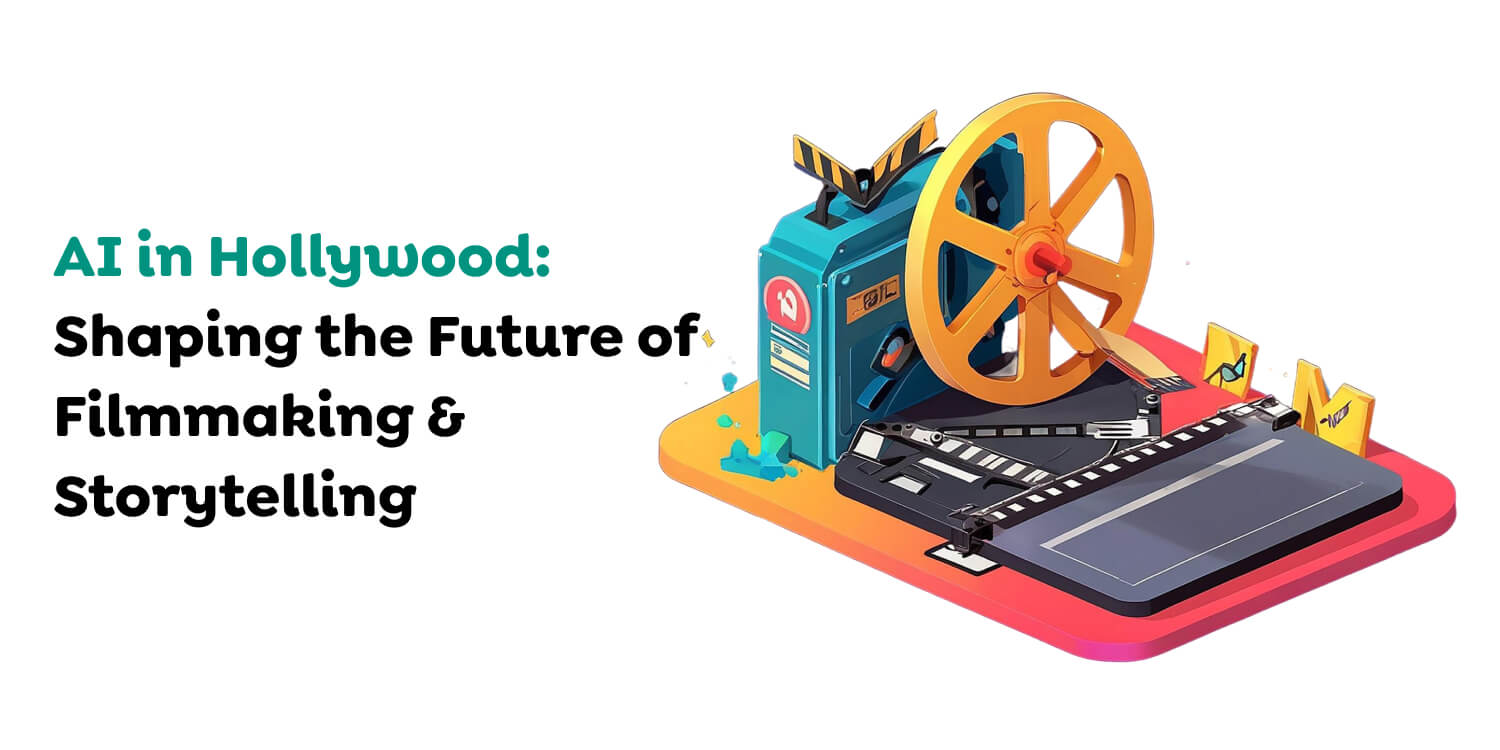
In the future, AI will play an essential role in Hollywood. Here are a few key trends to keep an eye on:
Although it isn’t explicitly mentioned in the blog, the potential for AI to aid screenwriting is immense. From brainstorming plot ideas to assisting with the dialogue process, AI tools could become invaluable to screenwriters, thereby helping speed up the development process.
As AI-powered actors and interactivity become more advanced, we could witness a shift towards more customized and immersive experiences for viewers.
Runway’s partnership with Lionsgate allows filmmakers to employ AI tools for pre-production and post-production, suggesting that AI could dramatically reduce production costs and times. This could result in better filmmaking processes and allow for more different tales to tell.
As AI becomes more integrated into filmmaking, the industry will have to address ethical concerns. These will include issues related to representation and biases inherent in AI algorithms, as well as the possible impact on employment opportunities in different sectors of the film industry.
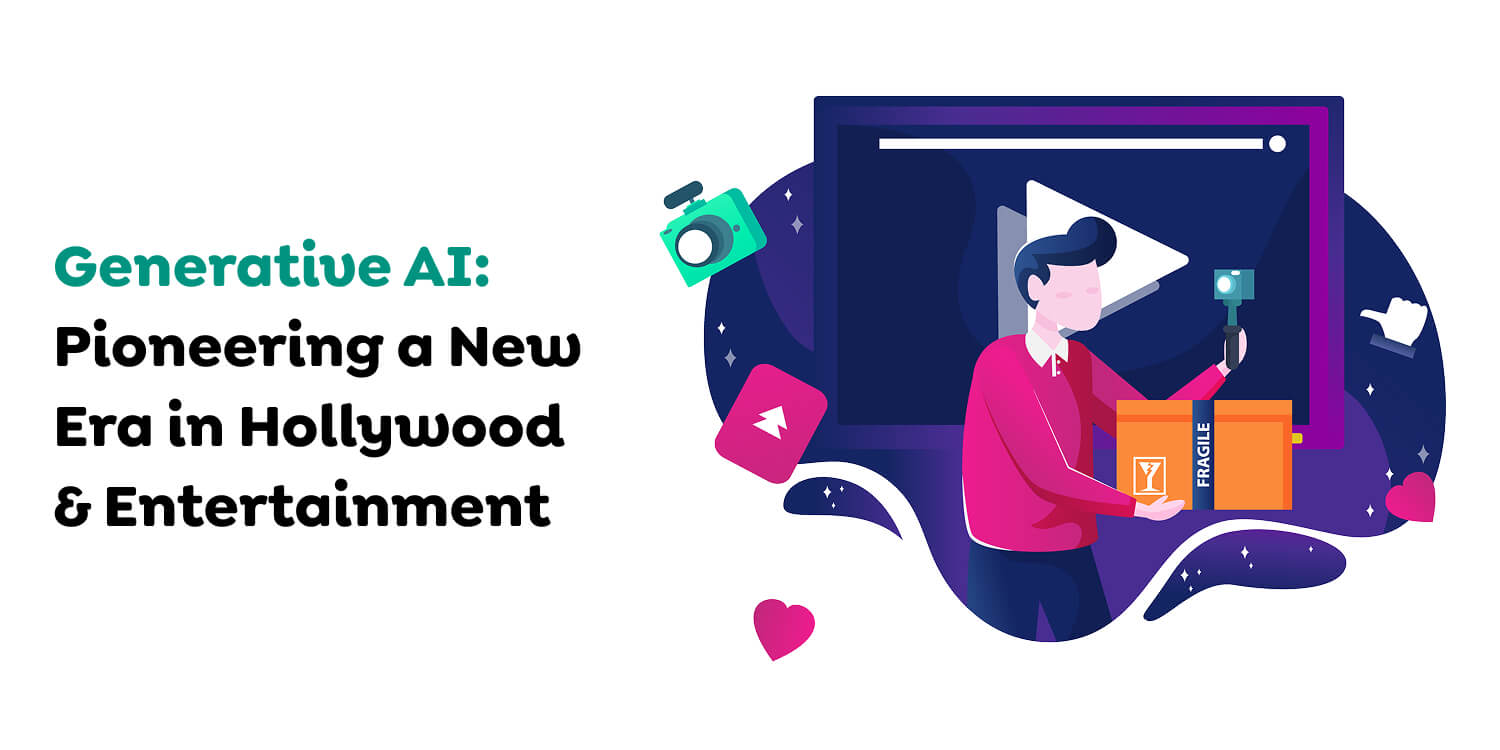
The use of artificial intelligence in the entertainment and media industry will continue to be a significant trend. Businesses that adopt this technology can create high-quality and unique content faster than ever. As with all new technology, there remain some ambiguities about generative AI. Entertainment companies must use the appropriate tools, minimize risk, and keep track of the public’s reaction as they launch artificial intelligence. To achieve this, they’ll require a reliable and knowledgeable partner.
Techugo, a mobile app development company in USA has demonstrated track experience working with businesses across sectors to create innovative AI solutions that satisfy their clients’ specific requirements. With extensive knowledge and expertise in the field in your corner, you can successfully take your ideas from concept to implementation.
If you’re eager to turn your innovative AI idea into a reality and transform your entertainment and media services, contact cloud advisors via Techugo today. Techugo will collaborate with you closely to discover your needs and design a bespoke intelligent AI solution that aligns with your company’s goals.
Write Us
sales@techugo.comOr fill this form